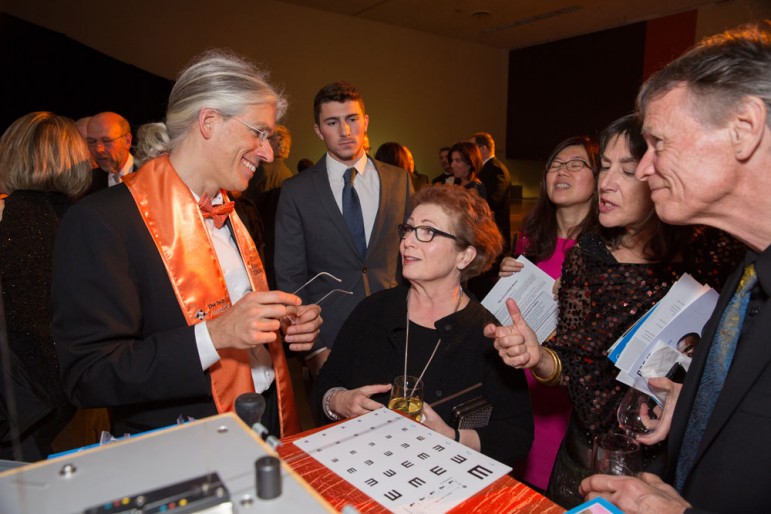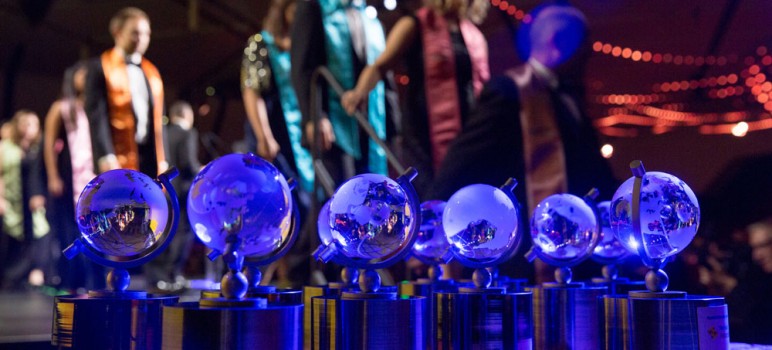Silicon Valley has always suffered from a split personality, and for that it can be thankful that it only half-resembles Wall Street.
The expectation that a business, or startup or an app should have to save the world, or at least extend a helping hand, is to forget that companies have only recently become human, and only to the extent that they are better equipped to fund political free speech. This is Silicon Valley, where most new ideas are anointed as disruptive, or a game changer, even if many of us don’t know where or what game is being played.
Last week, the Tech Museum held its annual award show, and I expected to take a resigned part in that game, to be wowed for all the wrong reasons. But every now and then a cynic finds an event that flips expectations, regardless of black ties and ball gowns.
The Tech Awards, now in its 15th year, celebrated 10 laureates in the San Jose Convention Center, all of whom have leveraged technology for humanitarian purposes—and not just because saving the world seems like a clever marketing strategy.
All recipients were well-deserving of trophies, but a few in particular blew away a writer who had every intention of removing a peg from the pedestal:
- DayOne Response, founded by Tricia Compas-Markman, creates 10-liter bags for people hit by natural disasters. In just 30 minutes, the bags and a powder solution can transform dirty, bacteria-laced water into a drinkable supply in emergency situations. She demonstrated its use at Golden Gate Park.
- Nick Lum created Beeline Reader, a color-coding text program that allows people who read well to read better, and people who have dyslexia or visions problems to read easier. California’s public library system will soon roll out the technology across the state.
- One of the coolest winners of the night was Martin Aufmuth’s One Dollar Glasses. The German schoolteacher’s wife told him to stop complaining and do something to address a global lack of access to affordable eyeglasses. Aufmuth created a box for engineering “German quality” frames, which cost just €1 and can manufacture up to 50,000 pairs.
Near the end of the show I bumped into Paul Mesarcik, the 25-year-old South African creator of Lumkani, a fire detection system for “informal settlements,” or what might be called shantytowns. Smoke detectors, he found, were impractical for most of these homes, because people use open fires for cooking, heat and reading light. At an age when I was still getting kicked out of school, Mesarcik has found a way to save lives and remain self-effacing.
Silicon Valley won’t save the world on its own, but for one night it provided a much-needed reprieve from the suggestion that it’s supposed to all alone.

Martin Aufmuth, left, invented a box that can create as many as 50,000 pairs of reading glasses that cost roughly a dollar per frame.
(Photo by Jakob Mosur, courtesy of Tech Museum)


Josh, it know you are only trying to make your writing more interesting and not deliberately mislead people, but it is not true that “companies have only recently become human”
Please see:
http://www.npr.org/2014/07/28/335288388/when-did-companies-become-people-excavating-the-legal-evolution
Corporations have had a sophisticated set of rights for over 100 years. The legal precedent in English law goes back to before the founding of the country. To relate this in the way you did only propagates politically motivated half-truths.
Hats off to all of those things inventors. It’s a great idea to honor them in this way and encourage similar risk taking and initiative in others. many of these products will be successful in the marketplace and make all of our lives better.
A natural consequence of that is that after all of the really difficult work of taking these inventions to market, the inventors will make a lot of money.
But in today’s political climate, that instantly identifies them as “evil 1%ers”. So this year, a nice award, next year, tar and feathers.